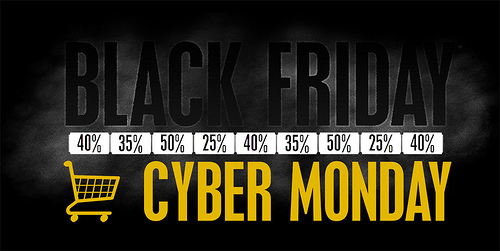Not So Cyber Monday

An advertisement for an online business in Germany. This poster was used in 2012. Photo courtesy Vanderelbe.de, 2012 © Vanderelbe.de.
December 7, 2013
December 2, 2013 marked the eighth year of Cyber Monday. The holiday began after a 2004 research study showed that the Monday after Thanksgiving didn’t have shoppers rushing to stores, but had them starting up their computers and shopping from home. The eHoliday Mood Study for 2005, done by Shop.org, stated that, “77 percent of online retailers said that their sales increased substantially on the Monday after Thanksgiving, a trend that is driving serious online discounts and promotions on Cyber Monday this year (2005).” The holiday is now celebrated in Canada, the United Kingdom, Portugal, Germany, Chile, Colombia, Ireland, Japan, and China.
To me, it’s seems like an irrelevant event. The original Black Friday already exists and has been going on for decades. Most businesses, online or in stores, have Black Friday sales no matter what. Why would you have another sale date three days after one of the biggest sale days of the year? There’s also another holiday called “Small Business Saturday” which focuses on small businesses having their own sale boost. Suppose there’s a small online business which has a Black Friday sale, then a Small Business Saturday sale, followed by a Cyber Monday sale. It seems pointless. Why can’t there just be Black Friday sales online for the whole weekend? I can partially understand why it’s still celebrated because it reaches out all over the world, whilst most sales only spread through America. However, there’s still no need for a secondary sale day holiday to follow the biggest sales event of the year.








